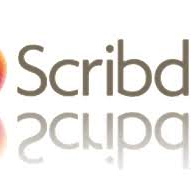Zoom culture definitely opened up the ability for writers, where ever they reside, to attend wonderful writers conferences across the nation and around the globe. I participated in a few myself. Still, nothing beats the personal interaction and camaraderie of spending a weekend ensconced in an intimate hotel setting with a hundred-plus other writers, agents, and editors. Are you ready to gather again? Here are four questions to ask yourself.
Question 1: Do you have an at-risk person in your immediate family or gather bubble? If so, 2021 might not be the year for an in-person conference. Although we would like to think that other attendees will monitor themselves accordingly and stay away if sick, this is not a certainty. It would also be great to assume that everyone attending will be vaccinated, but conferences will not be policing that. It really is on the honor system. If I had an at-risk person in my life, a big conference would feel too risky for me. In the past, I washed my hands multiple times a day anyway and always kept hand sanitizer near, since conferences were dubbed “coldferences.” As an agent, if I were going to get the cold or flu, I would most likely get it right after an industry gather. In fact, I always returned from the Bologna Children’s Book Fair with some kind of cold. Inevitable, despite dosing up on Echinacea and keeping Emergen-C handy.
Question 2: What is your threshold for people in your immediate space? Writers conferences mean a lot of people in small spaces. The hotel bar is always crowded in the evenings, and such bars are often not spacious. Although terrific for networking, that means folks may be talking within a foot of you. As we know from the six-foot standard social distance during Covid, droplets spray when someone is talking. It will be inevitable. Not too mention the lunch gather will be at a round table with at least six or eight other attendees Then there are agent pitch sessions, where you’ll sit one foot across a table from an agent to pitch your story. Rick Springfield might suggest “Don’t Talk to Strangers,” but at a conference, there’s no way around it. (Although I’d like to advocate for plexiglass partitions, like what grocery stores have.)
Question 3: What is your capacity for not observing standard American social niceties? At every conference I’ve attended, writers introduce themselves by extending a hand for a handshake. Personally, I’ve always felt that the Japanese were on to something with the steepled hands and a formal, short bow instead. In a post-Covid world, I’m not as interested in hand-shaking. And don’t even get me started on the European tradition of cheek pecking at the Book Fairs. At a conference, you might have to hold your ground and decline certain traditions. Definitely be sure to feel comfortable with your capacity to do so.
Question 4: What is the cost-benefit ratio for attending in-person versus virtual? If you’re going for craft guidance and instruction, virtual may still fill the need. If you are craving the human connection, then weigh the factors of catching a cold, flu, or worst-case scenario, Covid.
Just yesterday I discovered that a gal in my immediate circle who has been fully vaccinated for Covid started having flu-like symptoms after flying. A rapid test proved she is Covid-positive. Vaccination is not foolproof armor.
Something we all need to keep in mind as we start to gather again.
Game? Here are some Upcoming Colorado Gathers:
Writing in the Wilderness – July 16-19, 2021 Retreat
Rocky Mountain Fiction Writers Conference – October 15-17, 2021
Murder in the Mountains – October 29-31, 2021
Photo by Leah Kelley from Pexels








